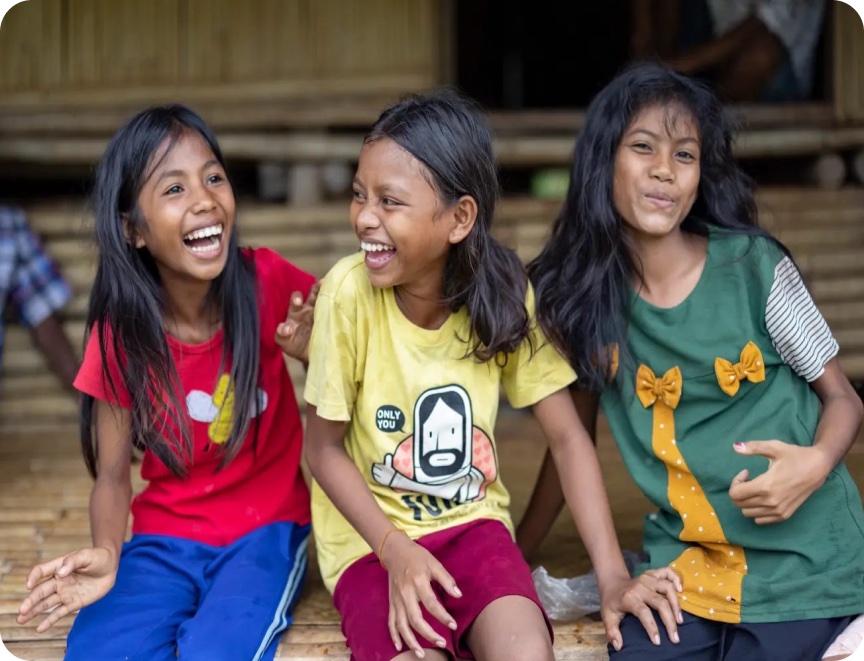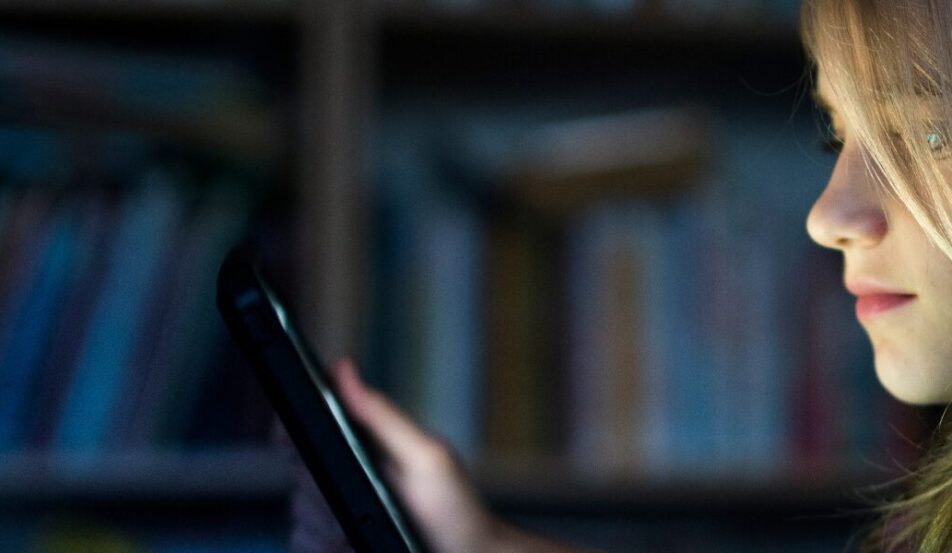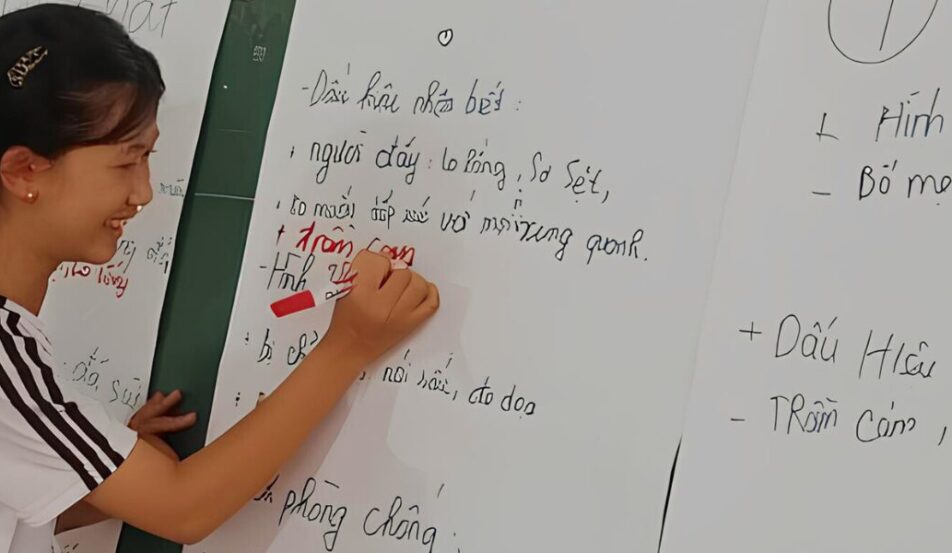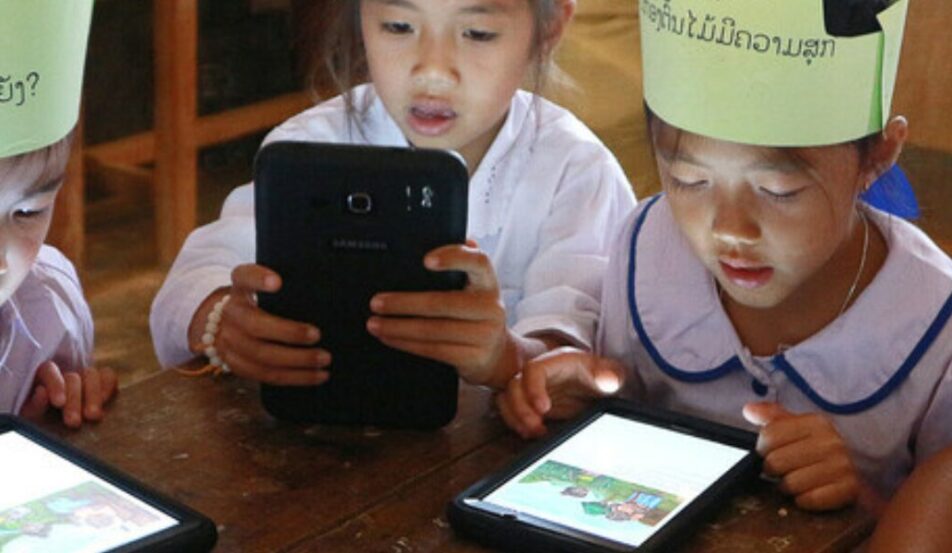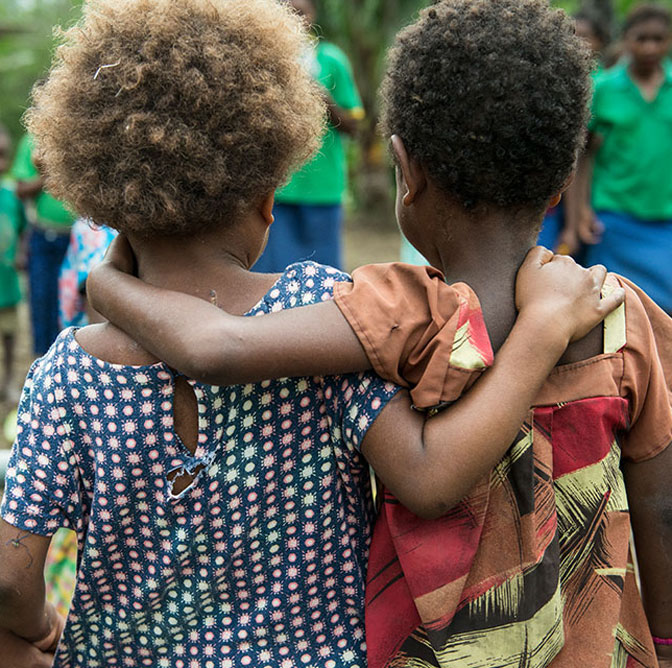Breaking the silence on childhood violence
Every child has the right to a childhood free from violence. Yet, worldwide, children remain vulnerable to exploitation and abuse, often from those closest to them. WHO (World Health Organisation) reports that up to 1 billion children worldwide, aged 2–17 years, have experienced physical, sexual, emotional violence or neglect in the past year. The impact of violence so early in life can be devastating to a child’s health and wellbeing, and can last long into adulthood.
But violence against children can be prevented.
We’re working to create supportive communities in the countries where we operate, supporting local leaders, social workers, parents and caregivers with the necessary skills and resources to respond effectively in situations where children are at risk. Our goal is to protect the rights and safety of all children.
Empowering communities to speak out against violence
Violence has long been seen as an effective parenting strategy in Cambodia. When children’s parents are away at work, they are, for example, left in the hands of neighbours or elderly community members who may use violence against them. Due to this long-standing belief and cultural norms, experiences of child abuse incidents have traditionally been kept under wraps. Keeping silent about abuse has been a way of saving face (to prevent prejudice or a negative public perception of their families) – until now.
ChildFund Australia is helping to break the silence surrounding child abuse in Cambodia. We’ve collaborated with WOMEN (Women Organisation for Modern Economy and Nursing) and local authorities to train social workers, parents, carers and children on child abuse prevention, the rights of children, how to report abuse, and other related topics.
As a part of the project, billboards and posters were installed in the communities, displaying phone numbers and helplines for the relevant local authorities and police. These serve as large-scale reminders that no abuser will be forgiven by the law, and have helped communities to report cases quickly. They are also helping to ensure that offenders are held accountable for their actions and are discouraged from committing further acts of abuse.

Supporting victims of abuse
While some parents or caregivers may strive to create a safe and positive home environment for their children, this is not always the reality for all households. This was the case for one family in a remote community in Cambodia, where a father was abusing his daughter. The mother of the young girl says that violence was a norm in their household but that a culture of silence had left her in the dark about what was happening behind closed doors.
“Since I gave birth to my last child, my husband has become irrationally angry with me, which caused me to distrust him,” recalls the girl’s mother. One night, she witnessed her husband sleeping with their daughter. The mother reported the situation to the village vice-chief, who had received training from ChildFund and had paid visits to homes in the community, encouraging people to report any child-related issues. The mother says that her daughter had been too afraid to confide in her. “My daughter didn’t tell me anything until the police arrested her father because she was afraid that he would kill her,” she says.
“I’ve noticed that about 50% of the kids in my neighborhood—especially ethnic minority children —are victims of parental neglect, rape, and domestic violence. For example, they aren’t sent to school or are left at home, exposed to potential harm.”
Chakrya, Social Worker
The trauma for children, young people and families affected by violence and abuse can be devastating. For the young girl, the nightmare of her experience does not end just because her father is now behind bars. It can cause lasting psychological harm. Social workers trained by ChildFund and our partners are helping to provide support to survivors and their families.
Chakrya, is a 23-year-old social worker who provided counselling to the young girl. Through the ChildFund-supported training program Chakrya has learnt about child rights, case management and positive parenting, as well as other administration skills to serve her community. Taking part in the training program was an eye-opening experience for Chakyra, who has since become more attuned to violence in her community. “I’ve noticed that about 50% of the kids in my neighborhood—especially ethnic minority children —are victims of parental neglect, rape, and domestic violence. For example, they aren’t sent to school or are left at home, exposed to potential harm,” she says.
Life after violence
With the knowledge and skills learnt through her training, Chakrya was able to support the young girl’s case and provide effective counselling and take action to protect her wellbeing.
“When I first went to see her, she was silent and didn’t respond to any of my questions,” recalls Chakyra, adding that the young girl was five months pregnant when they first met. “I worked with government officials to provide the necessary medical and legal assistance to the young girl, so she was able to get an abortion safely at the local health centre.”
The young girl no longer lives in her family home – a place now tainted by memories of her abuse. With the support of ChildFund, she has received a scholarship, which covers room and board, to pursue her education at a school far removed from her community. The young girl’s mother says she is thankful her daughter can continue her education and have the childhood she deserves. “Knowing that my daughter is safe and can focus on her studies, make new friends and think about her future is a huge relief – it means everything to me.”



















